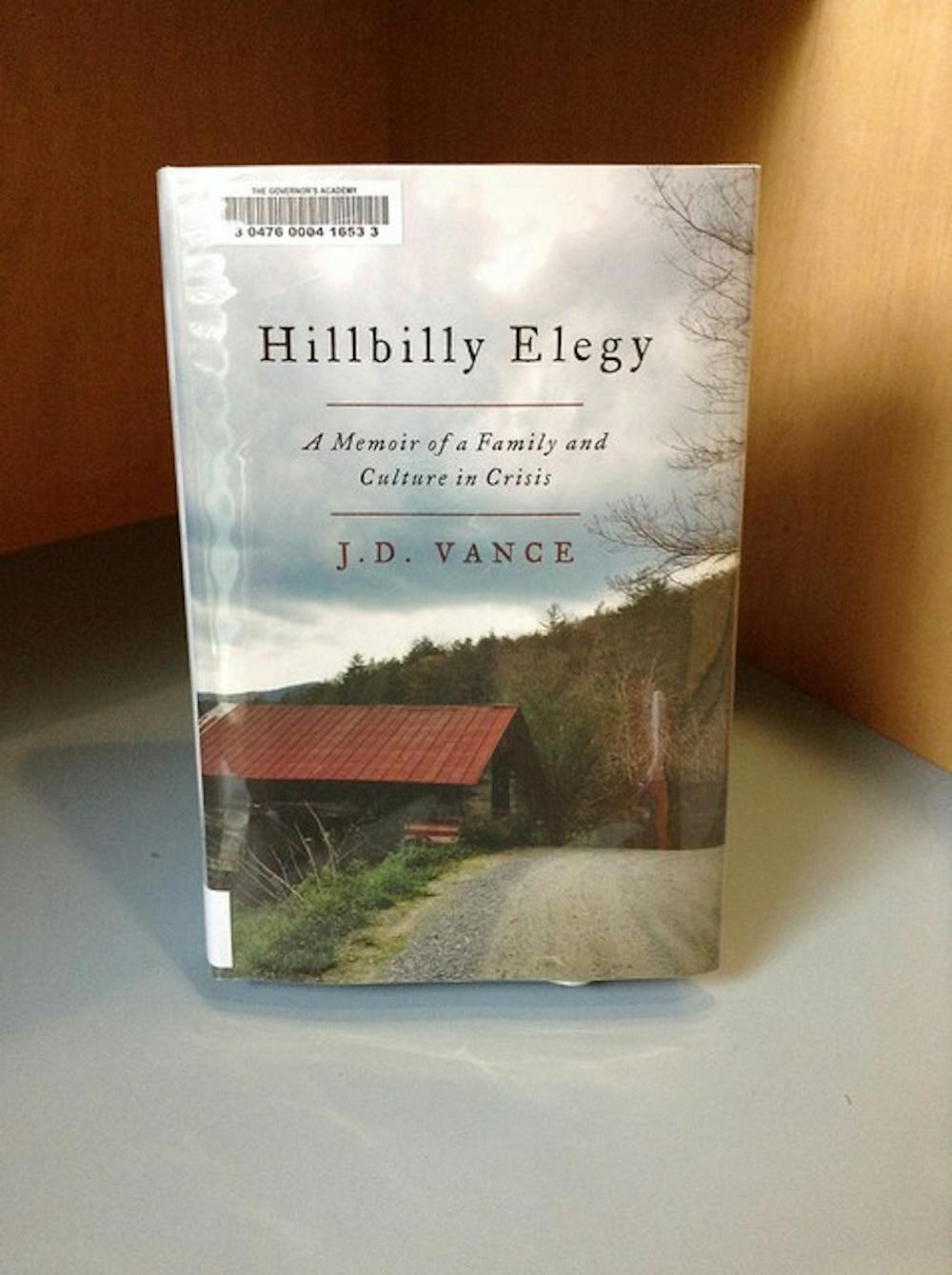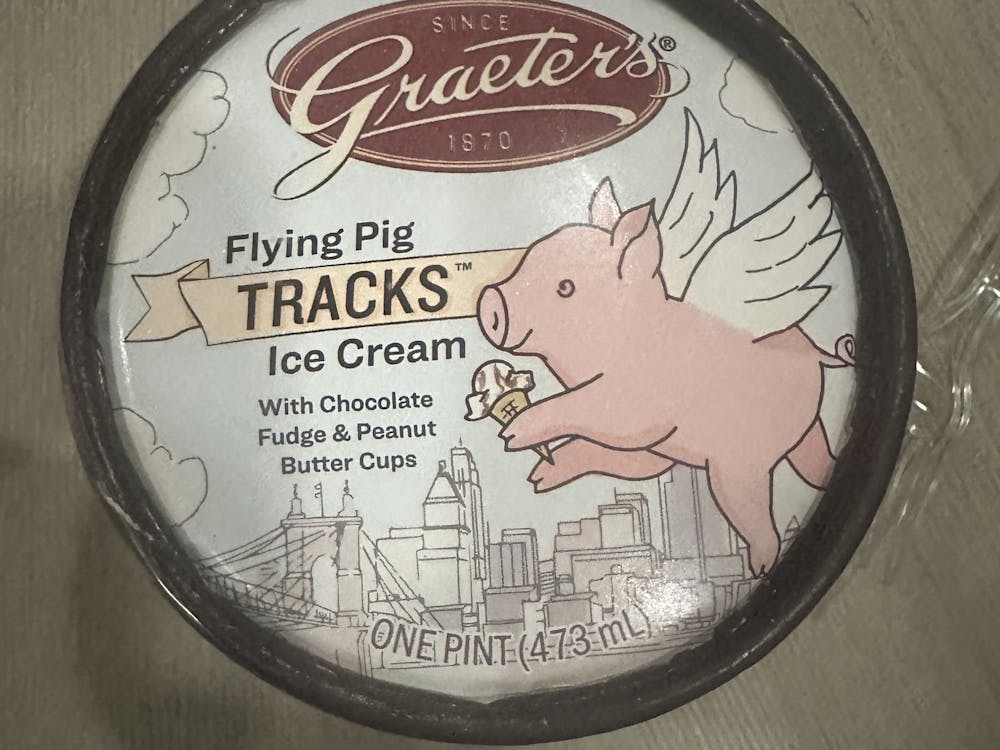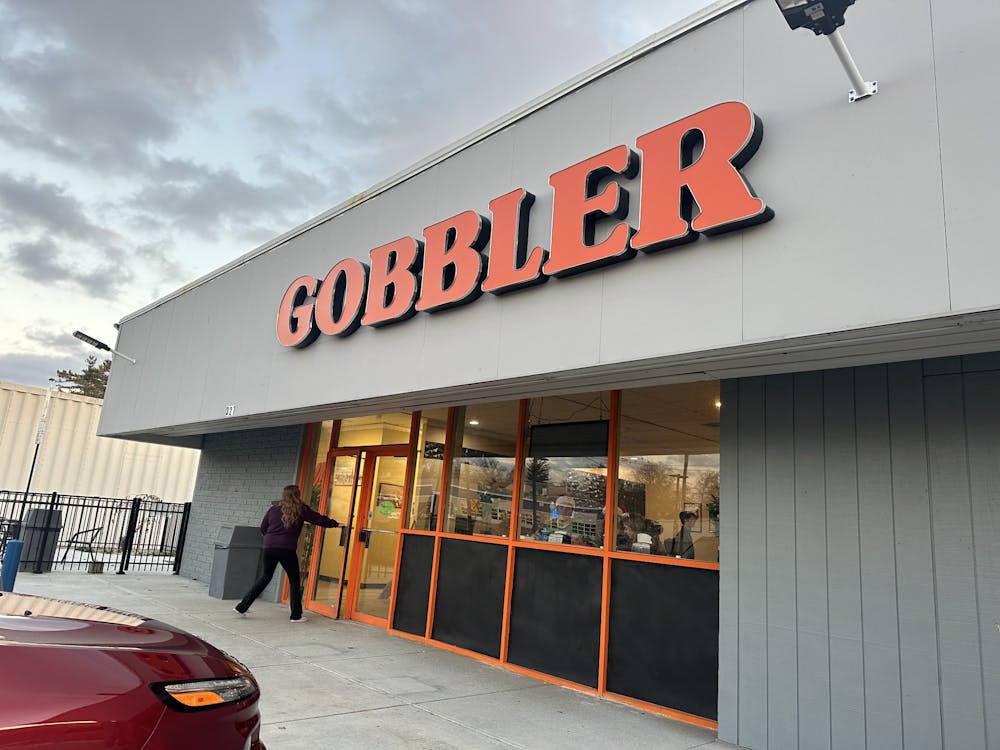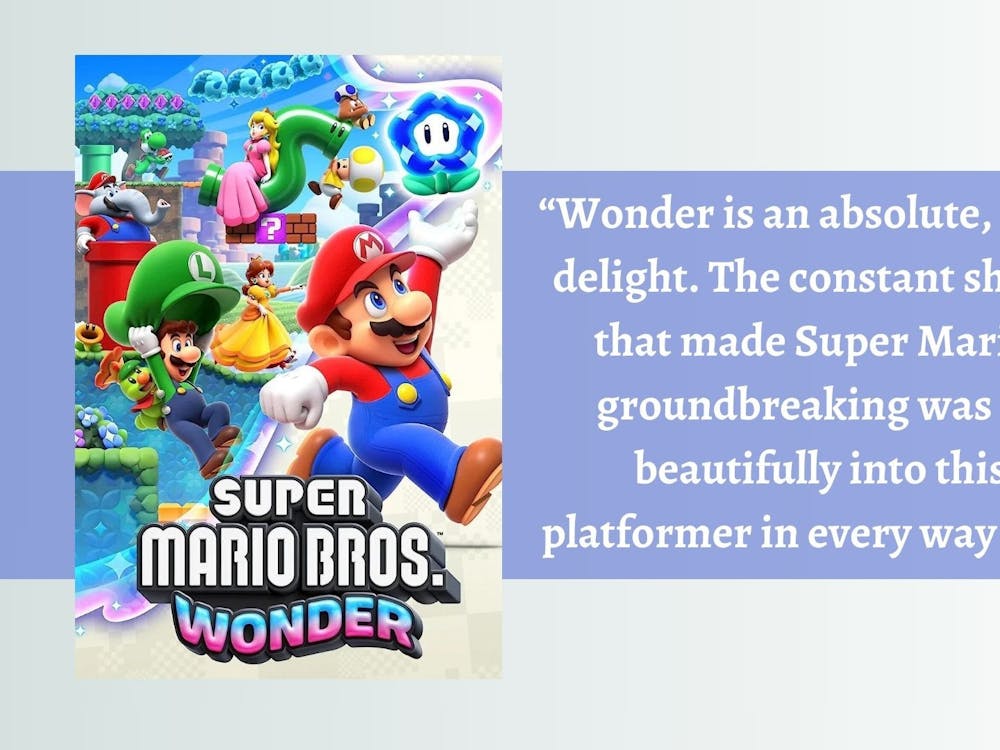This summer, my cousin, who is much more like an older brother to me, released a book titled "Hillbilly Elegy: A Memoir of a Family and Culture in Crisis."
Now, the idea that someone barely 30 years old has enough "memoir" material to fill a 272-page book might sound a little ridiculous, but J.D.'s book has been a huge success. Since releasing "Hillbilly Elegy," he has appeared on numerous radio and television talk shows and his book made the number one spot on the New York Times Bestsellers list.
The book is about J.D.'s life, growing up in Middletown, Ohio, with our grandparents, my namesake, Bonnie and James Vance, or as J.D. and I called them, Mamaw and Papaw. The book also presents a hard look at the problems related to addiction while taking a step back and looking at the white working class through a social and historical lens.
Some of the stories he tells in the book are hard to believe. The characters, if I hadn't known and loved most of them myself, seem like something from his imagination -- hill people who act more barbarian than human.
When I first read the manuscript of the book, I was mortified.
All of my family's dirty laundry would be hung out for the world to see when the book was published.
For example, J.D. details a time when Mamaw, a young girl of 12, fired shots at a man who tried to steal the family cow. She would have killed him, too, if it weren't for her brother, Pet. In J.D.'s words, "Mamaw's first confirmed kill would have to wait another day."
J.D. also writes about the fact that the man who started the infamous Hatfield-McCoy feud was a relative of mine, 'Bad' Jim Vance.
What would my friends, my peers or anyone who read the book, think of my unbridled family? What would they think of me?
The sweet, preppy, put-together persona that I had carefully cultivated over the past couple of years would crumble once people knew about the kind of hillbillies I came from.
J.D. himself had broken one of his own cardinal hillbilly rules through his book: telling family secrets to outsiders. And I wasn't happy about it.
Hillbilly comes from the Scottish terms "hilly-folk" and "billie," which is slang for "fellow."
Enjoy what you're reading?
Signup for our newsletter
Hillbillies are often characterized as backward, stupid, oafish, barefoot people who drink far too much moonshine and sing country music with a piece of straw between their teeth. When many people hear a southern accent, they immediately think that the person speaking is less intelligent.
I have always been horrified when my family calls themselves hillbillies. Growing up, I always thought it was not a good thing and most definitely not something that I wanted to be. I associated the word hillbilly with "white trash."
After the book came out, though, I started to see things differently.
Unlike J.D. and his older sister, Lindsay, I was fortunate enough to have a very normal childhood. I grew up with two parents who loved each other and we lived in one house.
I never had to be the parent, taking care of my younger sibling because my mother couldn't. I didn't have to get used to a revolving door of men, I have one awesome dad who is wholeheartedly devoted to our family. I never had to force myself to go to AA meetings with my mother and consume volumes and volumes of literature on the subject in the hopes that she would finally get better.
Partly because of my parents protecting me from these things and partly because I am 11 years younger than J.D., all of these things were happening right under my nose and I had no idea how bad it truly was for J.D. and Lindsay.
It is only now that I am able to think about the far-reaching effects of addiction in my own family.
Also, because I am so much younger than J.D. and Lindsay, I never got to know Papaw like they did. Reading "Hillbilly Elegy" has allowed me to get to know my grandfather. I cry every time I read about his death in the book, even though I was never really able to form a relationship with him -- J.D. paints such a vivid picture of Papaw, it is as if I did.
One of the principle themes weaved throughout "Hillbilly Elegy" is sense of one's self.
This is something I have struggled with personally. As many people do growing up, all I wanted was to fit in and be normal. (Which, if you read the book you see, with my family, that is nearly impossible.)
Before reading my cousin's book, I would have described myself as middle class and average all around, with nothing out of the ordinary about me or my life.
But recently I began to realize that what I was embarrassed about might actually be something to be proud of.
Yes, Mamaw was loud, gun toting and totally unconventional -- not your typical grandmother.
She had a foul mouth. Because of this, my little sister and I once tried to make Mamaw adhere to a curse jar. Twenty-five cents for every curse word. It sat on the windowsill in our kitchen. One afternoon while she was babysitting the two of us, she pulled out her checkbook and wrote a blank check.
"Now I can say whatever the fuck I want. I'll fill out the goddamned amount later," she said. The curse jar was soon a thing of the past. That was one habit Mamaw would not kick.
She was crass. My most vivid memory of Mamaw is sitting across the table from her at a nice restaurant. She was tearing into a piece of bread like an animal.
She caught me staring at her, grinned and said, "this is how a real woman fucking eats."
That sent me into a fit of giggles and put a genuine smile on her face.
She had a quick temper and a biting wit. She was a true force of nature.
The first time my father met her, she told him, "I'm from Breathitt County, where a woman ain't fully dressed without her gun!"
But she taught me to love fiercely. As is custom in "hillbilly" culture, she would have killed for her family -- a loyalty unmatched. I remember getting into a fight with my mom in the car on the way to Mamaw's house as a child. I got out of the car and ran into Mamaw's house visibly upset. Mamaw, always my protector, grabbed me up in her arms and reprimanded my mom for making me upset.
When our babysitter would come over, Mamaw would mysteriously show up too. When the babysitter would leave the room, Mamaw would whisper to my sister and me that she didn't trust anyone with her babies. I remember liking that Mamaw and I had a secret, although I'm sure Mamaw made it pretty evident to the babysitter that she wasn't trusted.
She believed in standing up for what was right, even if it wasn't popular, and you bet she would spew vitriol while doing it.
She believed in resilience and she lived it. After getting pregnant as a teenager, she and Papaw moved from Breathitt County, Kentucky to Middletown, Ohio, a strange town in which they knew no one. Papaw worked all day at the steel mill and Mamaw had to rely on herself. She raised three children and succeeded in saving one, my mother, from her own destructive behavior. She then raised J.D. and Lindsay, when her own adult daughter failed to.
I remember lying with Mamaw in her hospital bed near the end. She was sallow and had tubes sticking out everywhere, a scary sight for a kid. I had a stuffy nose at the time, and she was worried about me, asking if I was sick. Imagine that, worried about me, while she was obviously in greater pain and suffering.
Now, I am beyond proud to come from a long line of hillbillies if it means embodying all those qualities.
I strive everyday to make my namesake proud -- I would say that I have some pretty fucking big shoes to fill.
And rather than feel embarrassed about all that "dirty laundry," I'm happy that J.D. shared a little bit of our Mamaw with the rest of the world.




